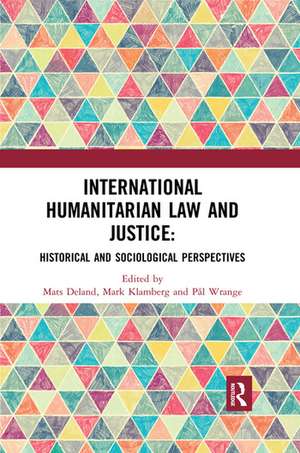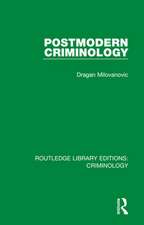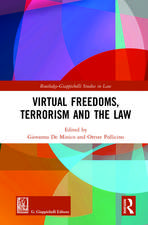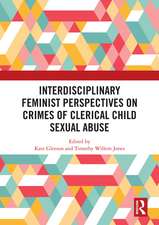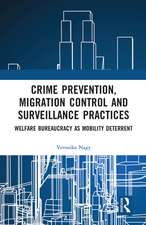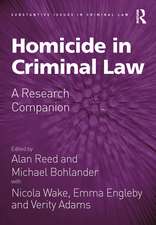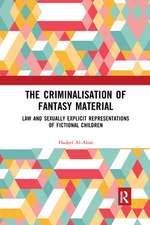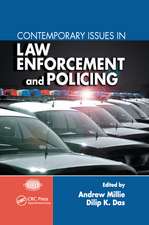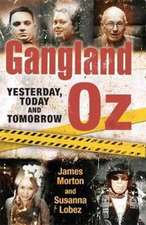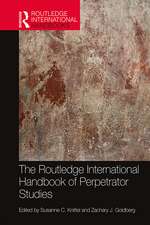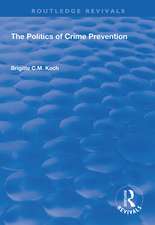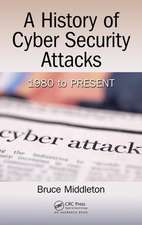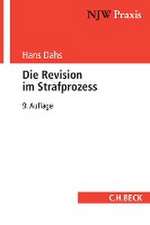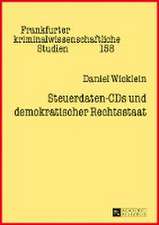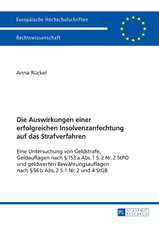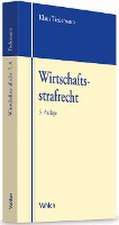International Humanitarian Law and Justice: Historical and Sociological Perspectives
Editat de Mats Deland, Mark Klamberg, Pål Wrangeen Limba Engleză Paperback – 25 feb 2020
| Toate formatele și edițiile | Preț | Express |
|---|---|---|
| Paperback (1) | 384.86 lei 6-8 săpt. | |
| Taylor & Francis – 25 feb 2020 | 384.86 lei 6-8 săpt. | |
| Hardback (1) | 1000.27 lei 6-8 săpt. | |
| Taylor & Francis – 18 oct 2018 | 1000.27 lei 6-8 săpt. |
Preț: 384.86 lei
Nou
Puncte Express: 577
Preț estimativ în valută:
73.65€ • 77.15$ • 61.03£
73.65€ • 77.15$ • 61.03£
Carte tipărită la comandă
Livrare economică 08-22 aprilie
Preluare comenzi: 021 569.72.76
Specificații
ISBN-13: 9780367498566
ISBN-10: 0367498561
Pagini: 242
Dimensiuni: 156 x 234 x 15 mm
Greutate: 0.34 kg
Ediția:1
Editura: Taylor & Francis
Colecția Routledge
Locul publicării:Oxford, United Kingdom
ISBN-10: 0367498561
Pagini: 242
Dimensiuni: 156 x 234 x 15 mm
Greutate: 0.34 kg
Ediția:1
Editura: Taylor & Francis
Colecția Routledge
Locul publicării:Oxford, United Kingdom
Public țintă
PostgraduateCuprins
1: Introduction; 2: PART ONE; 3: Chapter 1 - Introduction; 4: Chapter 2 - Historicising International Criminal Trials within the Modernist Project; 5: Chapter 3 - Engaging History in the Legal Protection of Cultural Heritage in War and Peace; 6: Chapter 4 - From Spies to International Criminals: The Influence of the Austro-Hungarian Counter Espionage Service on the International Criminal Police Commission; 7: Chapter 5 - Authority, Legitimacy and Military Violence: De Facto Combatant Privilege of Non-State Armed Groups through Amnesty; 8: PART TWO; 9: Chapter 1 - Introduction: Evolution of Rules and Concepts in International Humanitarian Law: Navigating through Legal Gaps and Fault-lines; 10: Chapter 2 - A hidden fault-line: How international actors engage with IHL’s principle of distinction; 11: Chapter 3 - Restraint in bello: Some thoughts on reciprocity and humanity; 12: Chapter 4 - Judging the past – international humanitarian law and the Luftwaffe aerial operations during the invasion of Poland in 1939; 13: PART THREE; 14: Chapter 1 - Introduction: Emotions and the law; 15: Chapter 2 - To feel or not to feel? Emotions and international humanitarian law To feel or not to feel? Emotions and international humanitarian law; 16: Chapter 3 - To Kill or Not to Kill as a Social Question; 17: Chapter 4 - War of Wor(l)ds – Clashing Narratives and Interpretations of I(H)L in the Intractable Israeli-Palestinian Conflict; 18: PART FOUR; 19: Introduction: The lawyer as an actor in history and society; 20: Chapter 2 - Lemkin on vandalism and the protection of cultural works and historical monuments during armed conflict; 21: Chapter 3 - Forgotten, but nevertheless relevant! Gustave Moynier’s attempts to punish violations of the laws of war 1870-1916; 22: Chapter 4 - The feminist origins of the Swedish Red Cross; 23: Index
Notă biografică
Mats Deland is Associate Professor in history and temporary lecturer at Mittuniversitet, Sundsvall, Sweden. His publications include Purgatorium (vol. 1, 2010, vol. 2, 2017) and he has expertise in Holocaust studies and Genocide studies, Urban history, Right-Wing Extremism, and the History of International Law.
Dr. Mark Klamberg (Jur. Dr. Stockholm University, LL.M. Raoul Wallenberg Institute and Jur. Kand. Lund University) is Associate Professor in international law at Stockholm University. He is the author of several publications on international criminal law, surveillance, privacy, and other fields of international law, including "Evidence in International Criminal Trials: Confronting Legal Gaps and the Reconstruction of Disputed Events" (Martinus Nijhoff Publishers, 2013) and "Power and Law in the International Society – International Relations as the Sociology of International Law" (Routledge, 2015). He is the chief editor of the "Commentary on the Law of the ICC" (CLICC).
Pål Wrange (PhD, LL.M) is Professor in public international law at Stockholm University and the Director of the Stockholm Center for International Law and Justice. He is a former principal legal advisor at the Swedish Ministry for Foreign Affairs. He has published widely on international law, international relations and theory and he has worked and consulted for the European Union, governments, and NGOs. He is currently working on a book on non-state actors, right authority, and the right to use military violence.
Dr. Mark Klamberg (Jur. Dr. Stockholm University, LL.M. Raoul Wallenberg Institute and Jur. Kand. Lund University) is Associate Professor in international law at Stockholm University. He is the author of several publications on international criminal law, surveillance, privacy, and other fields of international law, including "Evidence in International Criminal Trials: Confronting Legal Gaps and the Reconstruction of Disputed Events" (Martinus Nijhoff Publishers, 2013) and "Power and Law in the International Society – International Relations as the Sociology of International Law" (Routledge, 2015). He is the chief editor of the "Commentary on the Law of the ICC" (CLICC).
Pål Wrange (PhD, LL.M) is Professor in public international law at Stockholm University and the Director of the Stockholm Center for International Law and Justice. He is a former principal legal advisor at the Swedish Ministry for Foreign Affairs. He has published widely on international law, international relations and theory and he has worked and consulted for the European Union, governments, and NGOs. He is currently working on a book on non-state actors, right authority, and the right to use military violence.
Descriere
This book brings together scholars from various fields, including law, history, sociology and international relations to examine this historization of international humanitarian law.
